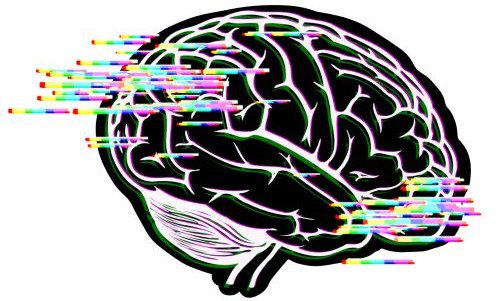🎯 You Are The Hero of This Story
If you’re reading this, you’re one of 17 million people in the United States living with ADHD. 🌟 You’re not just a statistic – you’re a person who deserves to feel focused, capable, and in control of your mind.
⚡ The Problem That’s Stealing Your Potential
Your brilliant mind feels like it’s working against you. 😤 You’re experiencing:
🌪️ The Daily Struggle:
- Your brain refuses to focus on tasks that matter
- Telling yourself to “just focus” feels impossible and frustrating
- Unfinished projects cycle endlessly through your mind
- Sleep becomes elusive as your thoughts race at night
- You feel scattered, disconnected, and underachieving
💔 The Deeper Pain: This isn’t just about productivity. ADHD can devastate your health, relationships, career, and finances. It leads to job failures, relationship breakups, loneliness, and a crushing sense of falling behind in life. For many women, the challenge goes undiagnosed, making the struggle even more isolating.
🚨 What’s at Stake: Without the right support, you risk being “left behind” by life – dropping out, burning out, or never reaching your true potential.
🌟 Meet Your Guide: We Understand Your Journey
At InnerOptimal, we’ve walked alongside thousands who’ve faced exactly what you’re experiencing. We understand that managing ADHD isn’t about willpower – it’s about working with your brain, not against it.
🗺️ Your Proven Path to Focus
We’ve created a comprehensive plan that addresses both immediate management and long-term improvement:
🧩 Phase 1: Master the Fundamentals
🎯 Harness the Zeigarnik Effect
- Start tasks for just 10 minutes
- Your brain will naturally want to complete what it started
- Tasks become smaller and more manageable over time
📋 Create Your Visual Command Center
- Ditch complicated planners that overwhelm you
- Use a simple whiteboard on your wall for daily focus
- Glance at it to quickly snap back on task when distracted
🅿️ Park Your Racing Thoughts
- Keep a notepad as your “thought parking lot”
- Capture important but distracting ideas for later
- Free your mind to focus on the present task
✨ Embrace Progress Over Perfection
- Set time limits to prevent hyperfocus on details
- Allow yourself to move on when “good enough” is achieved
- Remember: Done is better than perfect
🔍 Break It Down for Clarity
- Transform overwhelming projects into simple steps
- Write out your process to remove mental burden
- Experience the relief of a clear roadmap
🧠 Phase 2: Rewire Your Brain with Neurofeedback
While management strategies help you cope, neurofeedback helps you improve. Our program teaches your brain to produce the wave patterns associated with sustained focus and calm.
🚀 Take Action: Your Transformation Starts Now
Ready to move from managing to mastering your focus?
Here’s Tim’s story – and it could be yours:
Tim was 20, failing college, and couldn’t sleep due to his racing mind. 😰 He felt “left behind” by life, exhausted by his scattered attention. After just one month with InnerOptimal’s neurofeedback program, his sleep deepened and energy returned. 🌅 Within months, he was sleeping 7 hours nightly, his ADHD symptoms faded, and he not only re-enrolled in college but excelled in his studies! 🎓
🏆 Your Success Story Awaits
Imagine waking up feeling:
- 🎯 Focused and in control of your attention
- 😴 Rested from deep, refreshing sleep
- 💪 Energized and ready to tackle your goals
- 🧘 Calm with a settled, peaceful mind
- 🚀 Confident in your ability to achieve your dreams
Research shows neurofeedback participants experience significant improvement in core ADHD symptoms – equivalent to medication benefits but without side effects. Even better, these improvements last at 2 years post-training.
⚠️ What Happens If You Don’t Act?
Without addressing the root cause, you’ll continue cycling through:
- Endless frustration with focus issues
- Sleepless nights and exhausting days
- Missed opportunities and unfulfilled potential
- The growing gap between where you are and where you want to be
💫 You Are Not Alone – Your Community Awaits
Thousands have walked this path before you. You have practical tools to manage your focus today, and a proven neurofeedback program to transform your brain for tomorrow.
Your focused, calm, successful life is waiting. 🌈
The question isn’t whether you can overcome ADHD – it’s whether you’re ready to take the first step toward the focused, fulfilling life you deserve.
Ready to begin your transformation? InnerOptimal is here to guide you every step of the way. 🤝✨





